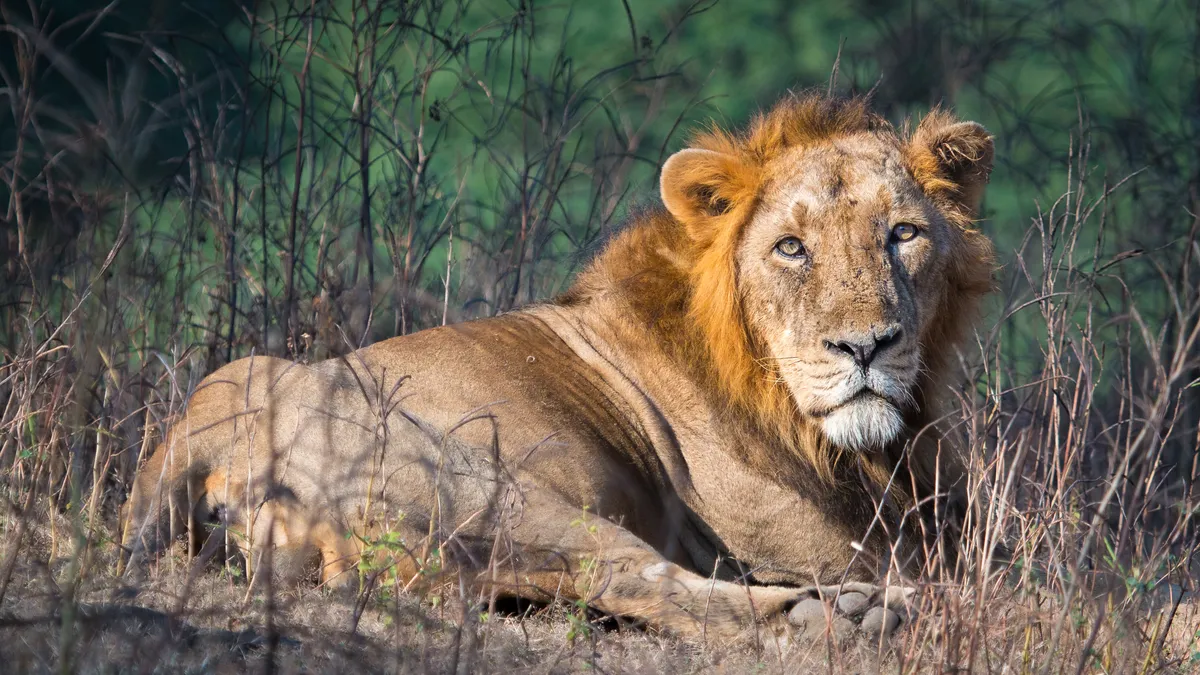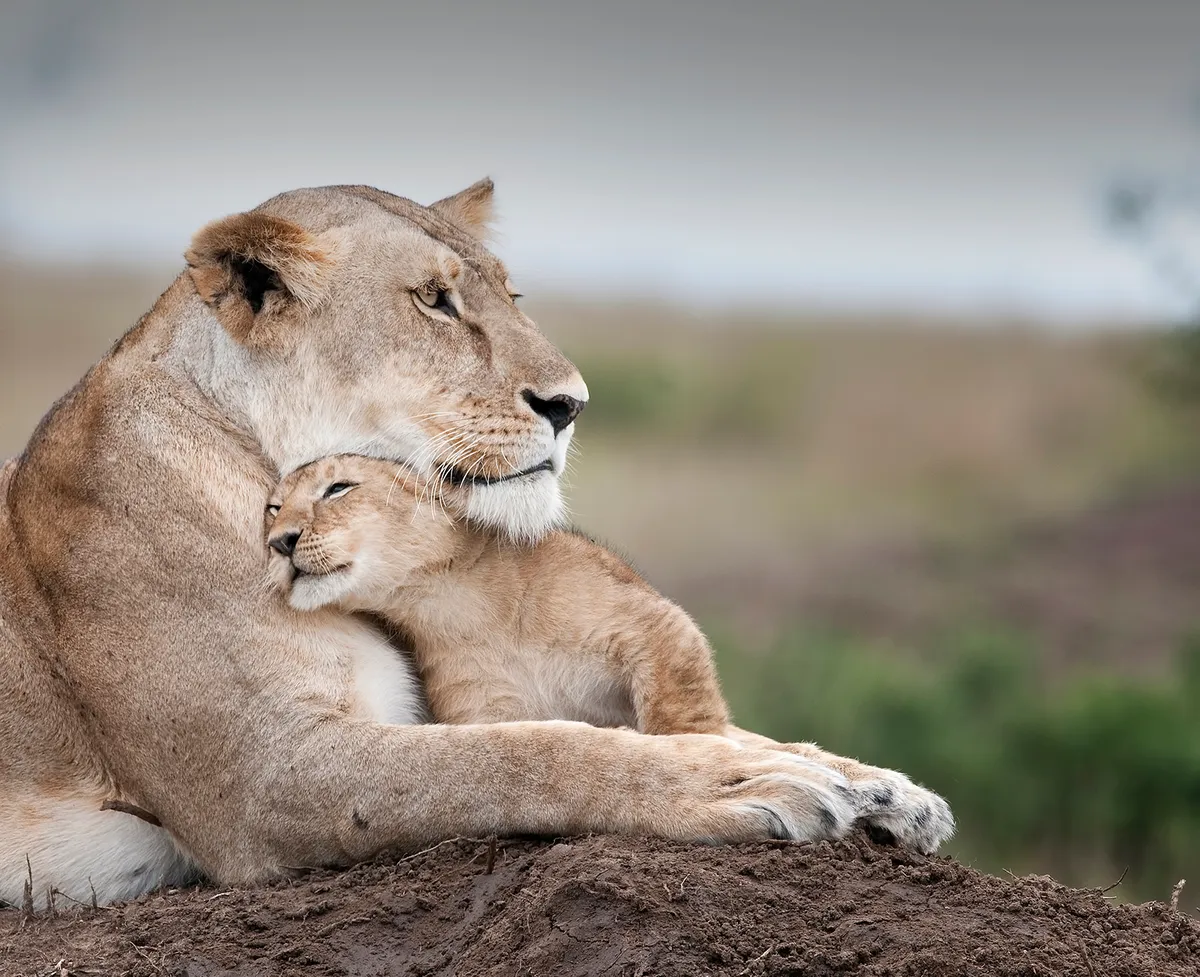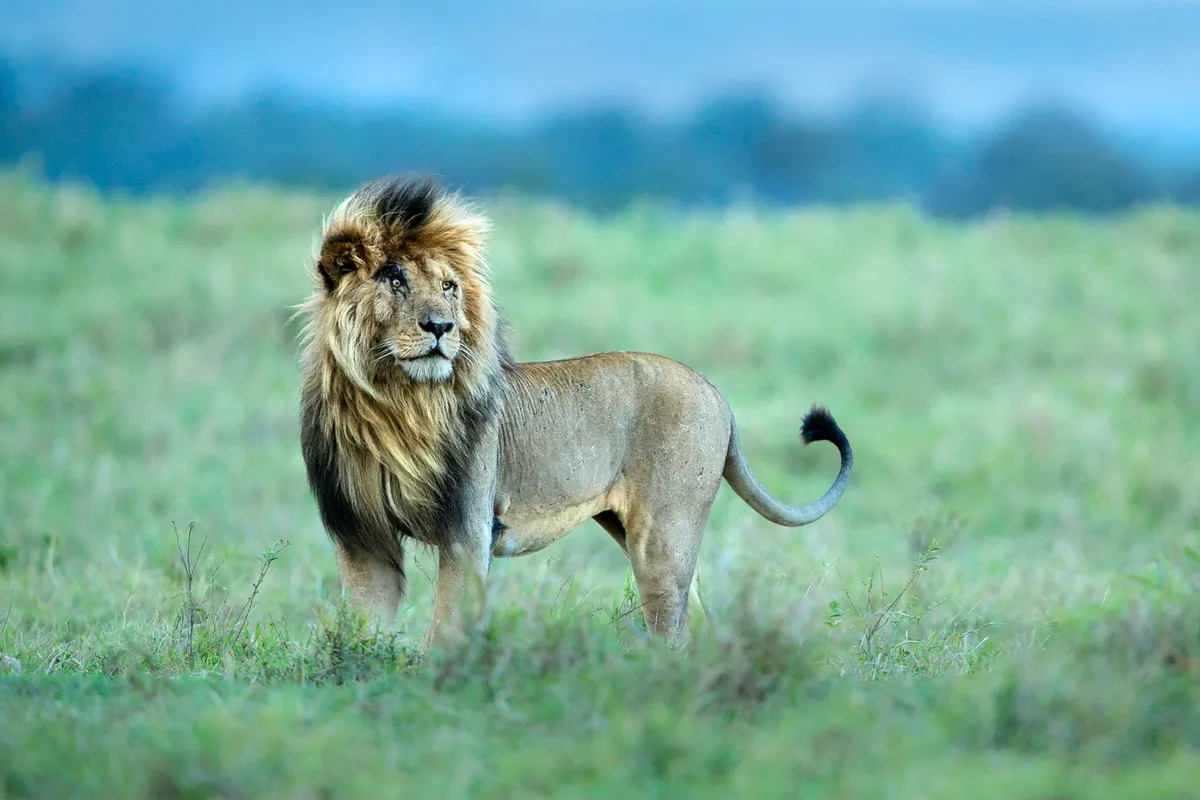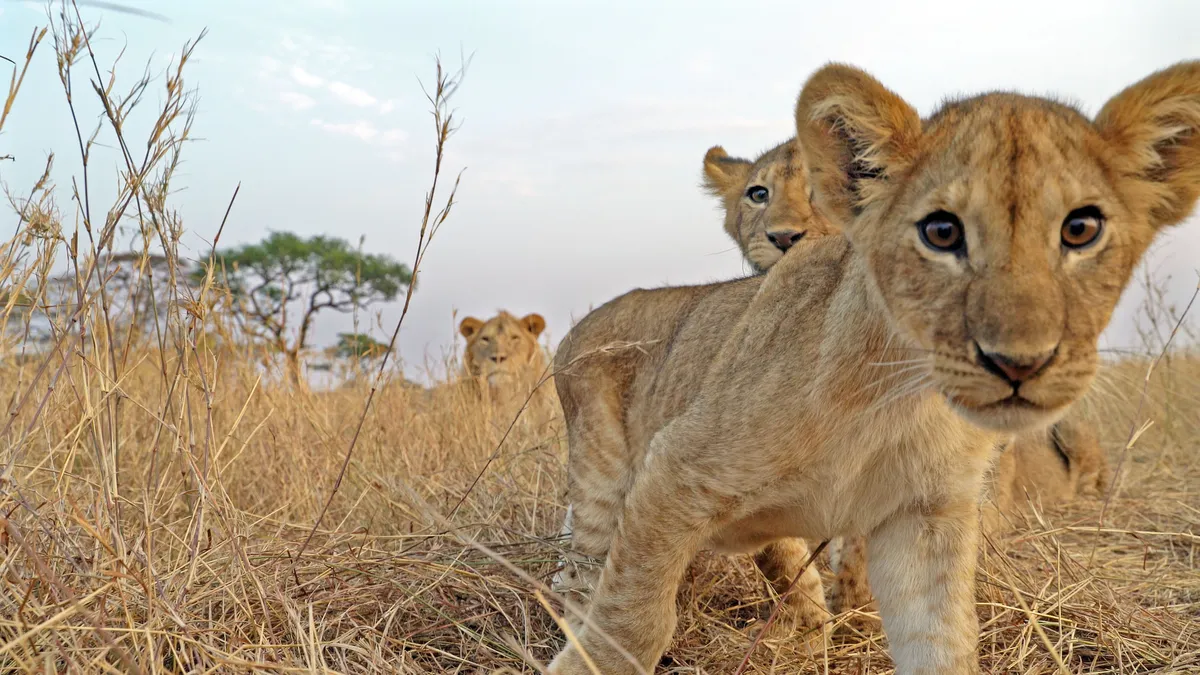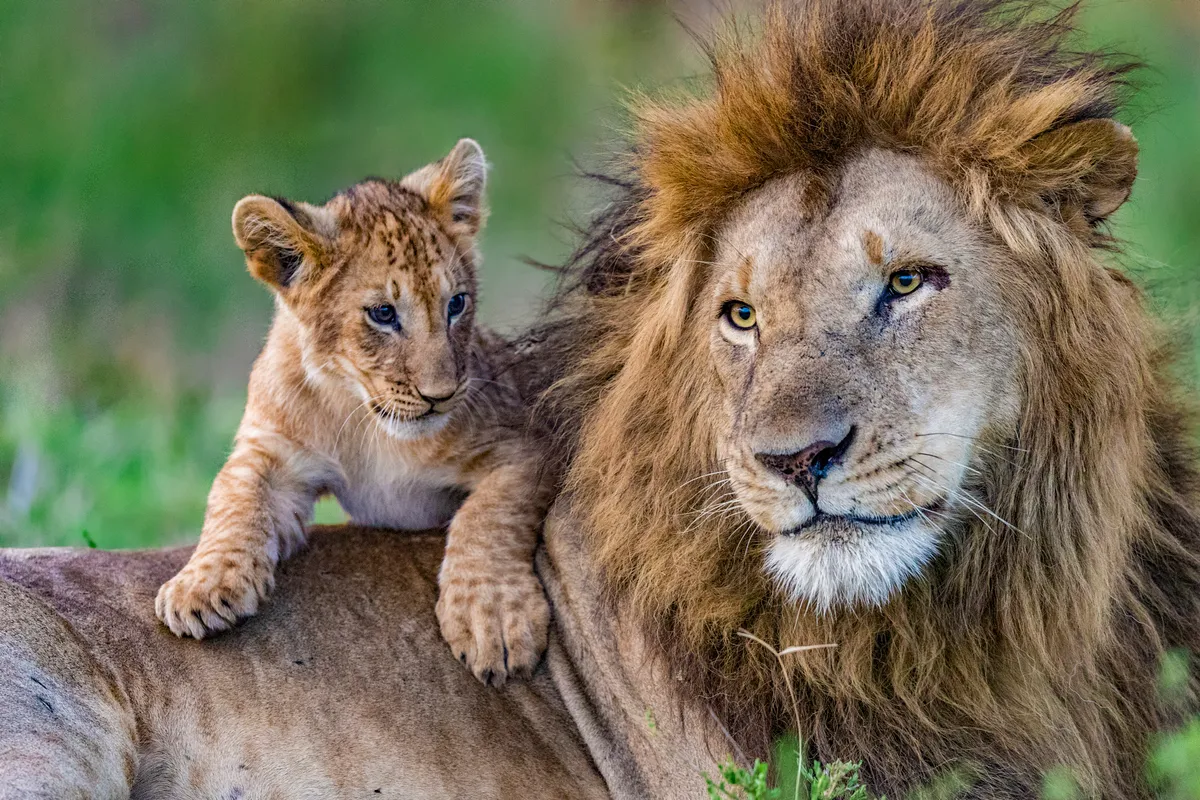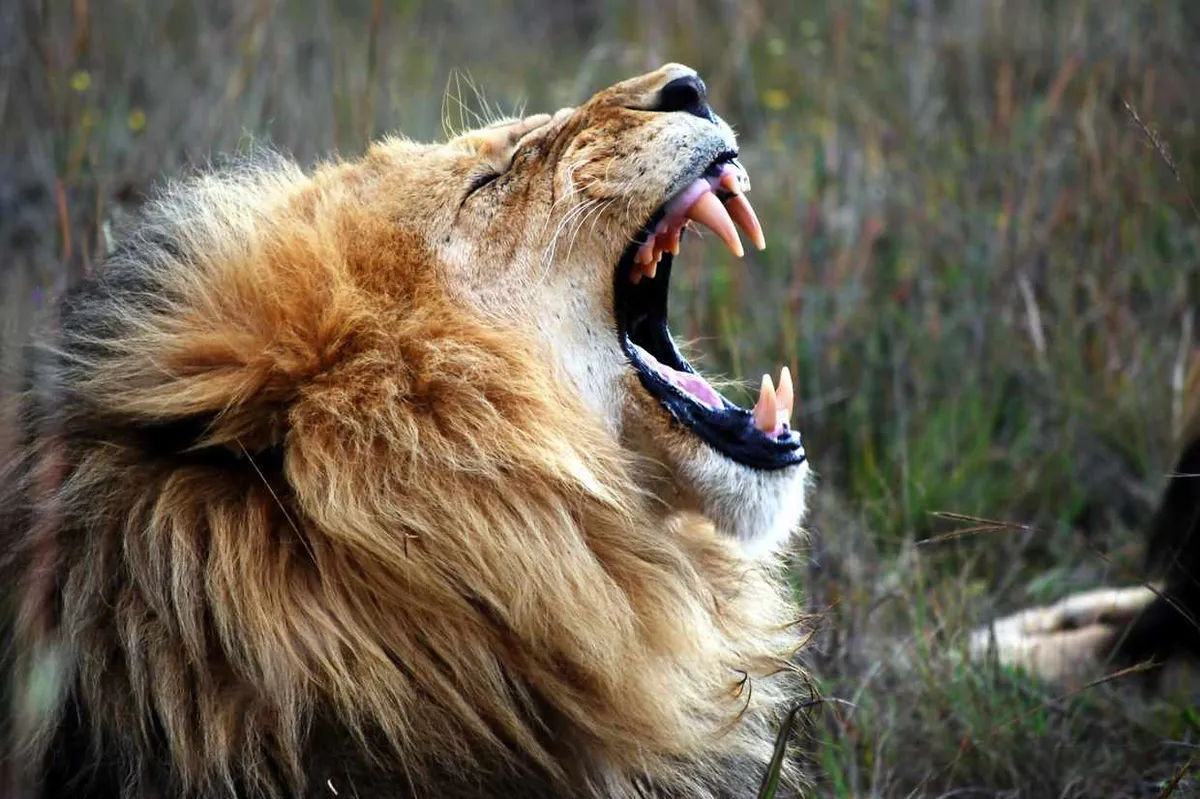The African lion is one of the most iconic and revered mammals in the world. With its strong jaw, powerful body, and fierce roar – which can be heard several miles away, it is easy to see why this species has been admired throughout history.
While the species once roamed widely in parts of Europe and Asia, numbers of lion have declined significantly in recent years, with lions now only found in parts of Africa.
One of the big cat species and a domineering apex predator, our expert lion guide looks at key species facts, including identification, diet, habitat and why the species is now endangered.
How many species of lion are there?
There is only one species of lion, which is known scientifically as Panthera leo. There are two recognised subspecies, the African lion P. l. leo and the Asiatic lion P. l. persica.
Some taxonomists have proposed a different split of the subspecies - with P. l. leo covering lions in Asian and west, central and north Africa, and P. l. melanochaita for lions in south and east Africa.
Why do lions have manes?
Male lions boast impressive manes, conveying a range of information about their owners status among the pack. Long dark manes indicate that the lion is in peak condition. The darker the mane, the more attractive to females. However, long dark manes can also lead to lower sperm counts in males when temperatures rise.
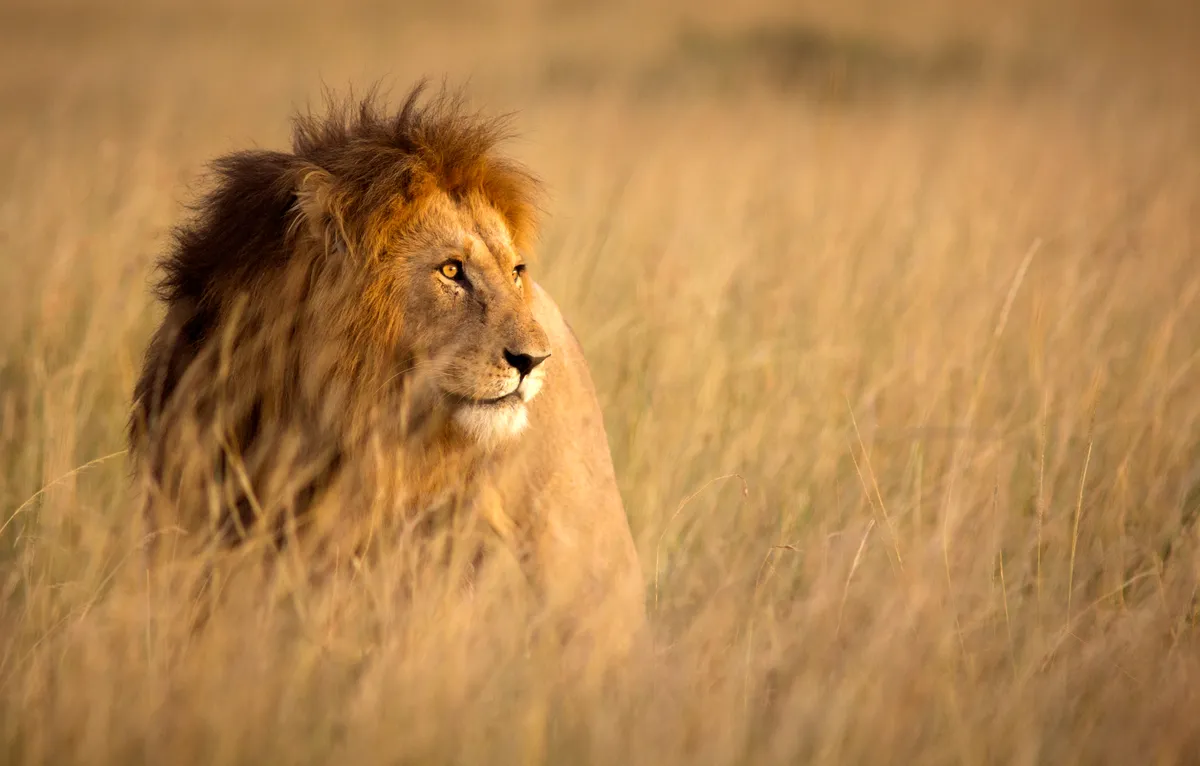
Why do lions roar?
Lions have very complex communication behaviours, producing a variety of calls, but are known for being the king of the roar. A lions roar can be heard from 8km away, being brought on by a number of reasons. From territorial displays to locating other members of the pride, allowing females to differentiate between outsiders and males of the pack, helping them protect their cubs from lions that could potentially attack their young in aims to overthrow the pack.
Scarface: the legacy of a lion
As the sun sets on the reign of the most famous lion ever to walk the Maasai Mara, we look back at the life of a legend – and the winds of change blowing through this iconic grassland.
Read about Scarface: the legacy of a lion
Are lions king of the jungle?
Lions once lived in Europe, Africa, the Middle East, North America an Northern India. Now lions primarily live in Africa, aside from a small group of Asiatic lions that live in India’s Gir Forest.
African lions have a variety of different habitats, from open woodland, to harsh desert environments, these versatile animals can adapt to many different environments, although you’ll never find them in the rainforest.
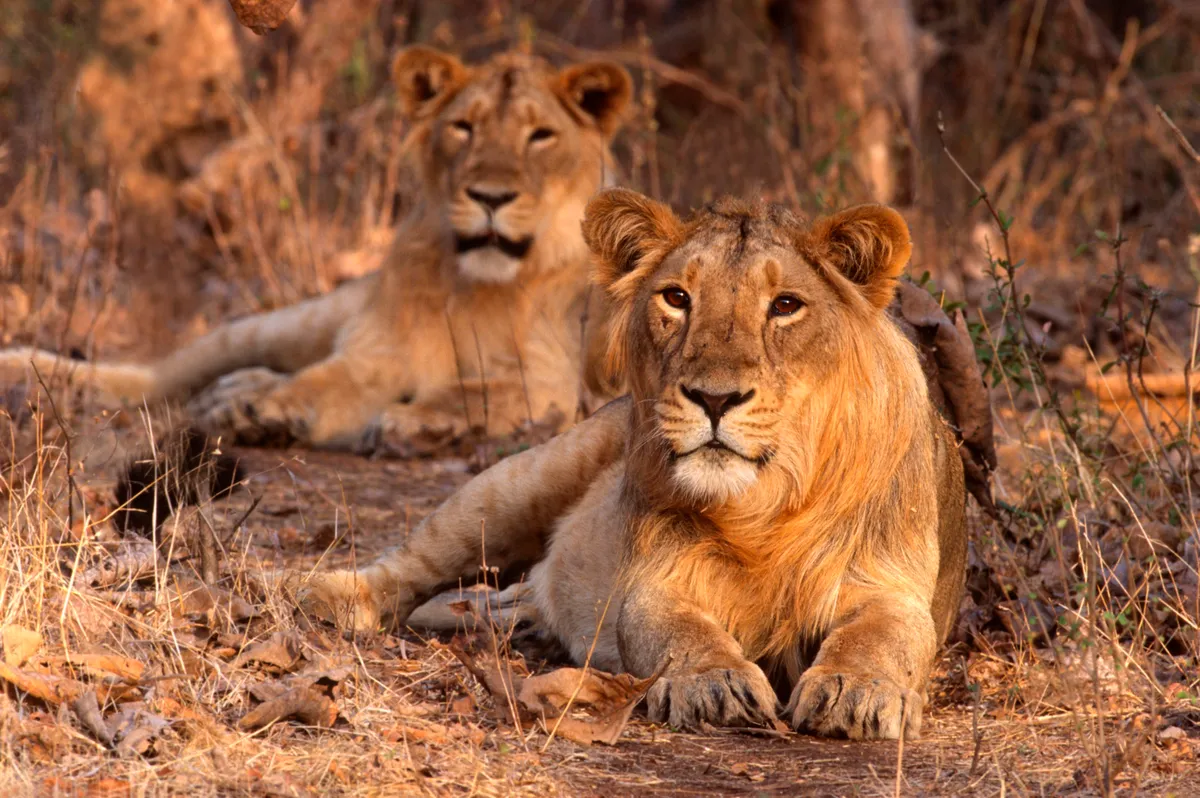
Can lions and tigers co-exist?
India is the only country in the world that is currently home to both of these charismatic big cats, and history and biology say they can indeed co-exist. The felines’ ranges overlapped for millennia across much of western Asia – in India, this was the case into the early 19th century.
Much as predators co-exist in Africa, tigers and lions can live together within carefully drawn boundaries. For example, they may use adjoining habitats, or the same habitats at different times. Behavioural adaptation is another strategy, particularly when it comes to hunting: tigers are largely
killing prey by ambush, while lions are social felids, hunting co-operatively with their prides.
The question of lions and tigers as neighbours is gaining importance in India. The Kuno Palpur Sanctuary in Madhya Pradesh has been ‘prepared’ and is awaiting translocation of a number of Asiatic lions, which survive only in the greater Gir landscape in Gujarat, western India. In the meantime, tigers are moving into Kuno from the famous Ranthambhore Reserve, crossing rivers and ravines along the way.
This Q&A originally appeared in BBC Wildlife Magazine, and was answered by Prenrna Bindra.
What do lions eat?
Lions will kill anything, from mice and lizards to wildebeest and other large animals to feed the pack. If an opportunity arises, lions will steal kills from wild dogs or hyenas.
Most hunting takes place at dusk until dawn with the cooler temperatures being essential for the long hours spent in search of food. On days where food is highly accessible, an average male lion can consume 15 percent of their body weight.
Please note that external videos may contain ads:
What is a baby lion called?
Young lions are called cubs. When they are born with blue eyes, changing to an amber hue at the age of three months. At eleven months cubs will start to hunt, and will remain with their mother for around two years. Females often stay on to become members of the pride, whereas male cubs will go off attempting to establish their own. Females tend to have two to three cubs per litter.
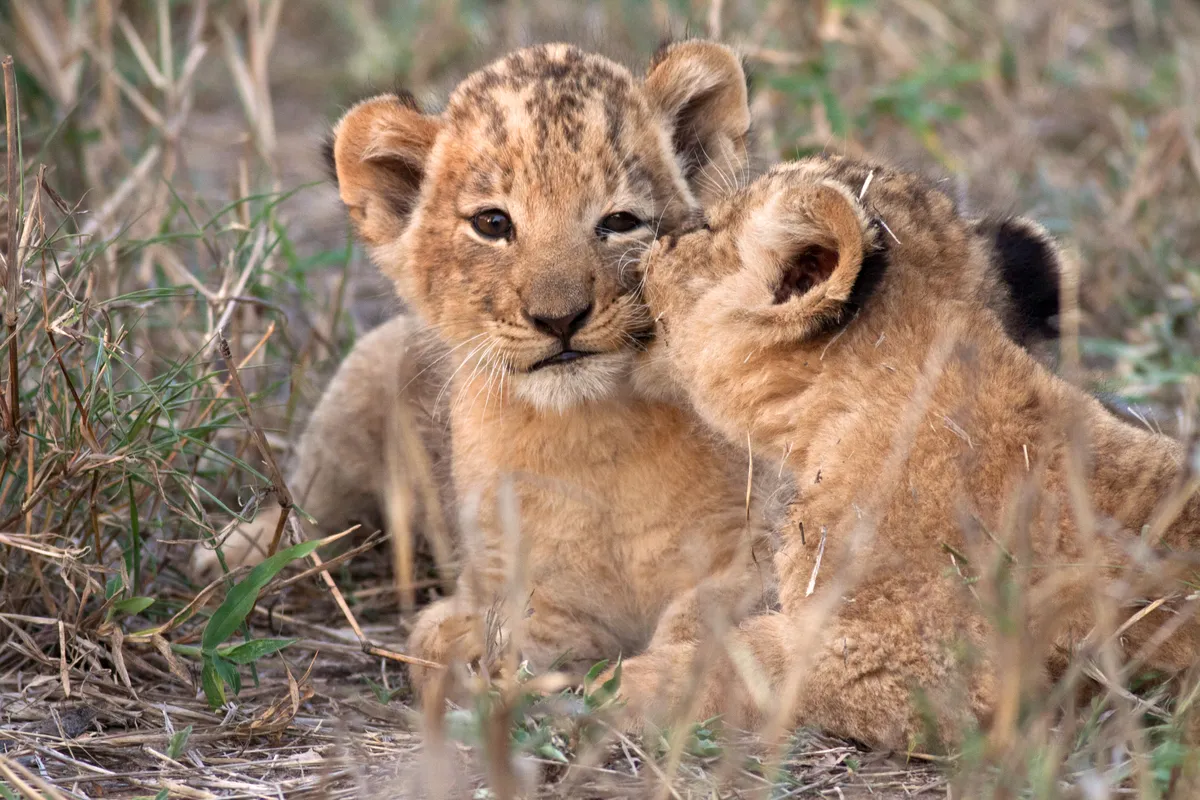
How many lions live in a pride?
Lions are the most sociable members of the cat family living in prides with up to 25 others. This is down to the availability of prey in the area. The females are all related, often making up the majority of the pride, consisting of only 1-4 males.
Do lions often climb trees?
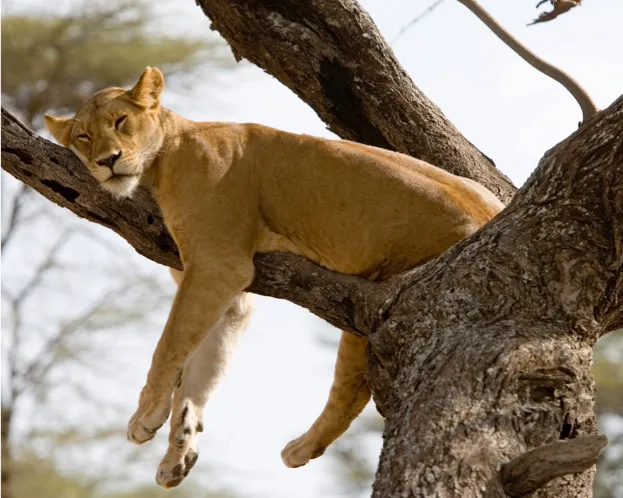
Not really, says Sarah Huebner from the Lion Research Centre. Though individuals from most prides exhibit tree-climbing behaviour, they don't do it very often - in less than five per cent of observations.
The primary motivation for heading up into the branches it to avoid something unpleasant on the ground, such as an attack by elephants or buffalo. These skirmishes often occur after a failed predation event, when the prey animals have sufficent numcers to retaliate. Elephants and buffalo are quite capable of killing a cornered lion due to their size and strength.
Lions may also climb trees to get better vantage points for identifying potential targets, or to avoid biting insects.
Why is the African lion endangered?
Overall, lions are listed as Vulnerable on the IUCN Red List, although the different subpopulations have different classifications. The Asiatic subspecies is listed as Endangered.
Lions face a number of threats, including habitat loss, a decline in their prey species, trade in bones and other body parts for traditional medicine, and killing in retribution and defence of human life and livestock.
How can lions survive?
Words: James Fairfield
What do you think will save lions from going the way of sabre-toothed cats? More severe penalties for persecution? Greater restrictions on where people can live? Or a model that offers those Africans who live with lions some recompense for doing so?
Lions are in trouble. Populations are declining across Africa, mainly because of increasing conflict with herders of cattle and other livestock.
In short, people kill lions to stop them from taking their cows, sheep and goats.
Lions in some countries are fairing better than others. In South Africa, for example, the population increased by 7 per cent over two decades, largely thanks to the use of fencing that separates the predators from the people.
In Zimbabwe, numbers have grown by more than 1,000 per cent (but from a very, very low base of about 50), mainly on the back of trophy hunting.
But in all of West Africa and even popular wildlife tourism destinations such as Botswana, Tanzania and Zambia, they're disappearing at a rate of knots.
Now new research has found that lions are doing better in the Masai Mara ecosystem, in Kenya (where in fact the overall country trend is down) thanks to the creation of community conservancies.
Households with conservancy membership receive a share of the money that comes from wildlife tourism. Where there are lions and other carnivores, you get more tourists and local people are financially better off.
The paper, published in the Journal of Applied Ecology, shows that the average lion population density within the Mara’s conservancies – almost 12 lions per 100km2 – between 2008 and 2013 was 2.6 times higher than previously reported in 2003.
Not only that, but those livestock settlements that were not members of a conservancy and were within the home range of a lion pride had a large negative effect on lioness survival rates.
“This suggests that lions can survive outside of fenced areas within pastoral regions if communities gain benefits from wildlife,” say the authors, led by Sara Blackburn and Dr Grant Hopcraft of the University of Glasgow.
Dr Laurence Frank, director of the Living With Lions project, added: “Only local people can reverse the downward spiral [in wildlife numbers], and this study shows that profits from tourism can motivate rural people to tolerate rather than eliminate wild animals.”
Find out about Living With Lions
How to survive a lion attack
Words: John Coppinger
Most lions flee, even from people on foot, but an attack is a possibility and knowing how to react could save your life. Walking safaris are a relatively new concept, and lions still perceive humans on foot as a threat.
Conversely, as the biggest tourist attraction in many African wildlife reserves, lions have become fairly habituated to vehicles and can be approached to within a few feet. Indeed, they often appear totally oblivious to them, despite the excited chattering of their occupants and the clicking of cameras.
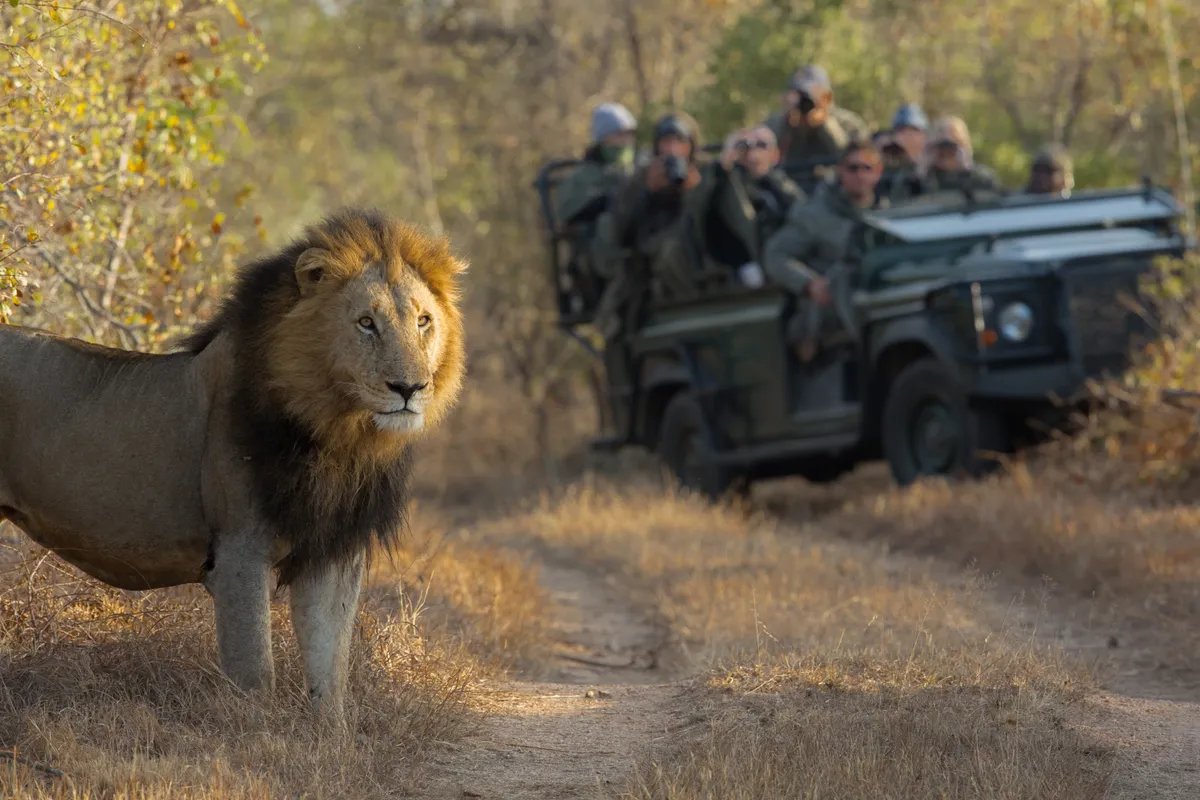
Lion behaviour varies from region to region. When I first went to Zambia’s North Luangwa National Park, it was virtually devoid of tourists, so the lions weren’t habituated.
Many of our early encounters with lions there (while we were building a camp) developed into mock charges, which was disconcerting to say the least.
What to do if you are attacked by a lion
Being charged by a lion when you are on foot is extremely frightening. It is difficult to stop yourself from bolting, but that is likely to prompt an attack. A lion charge is usually accompanied by a deep growling sound that reverberates through your very core.
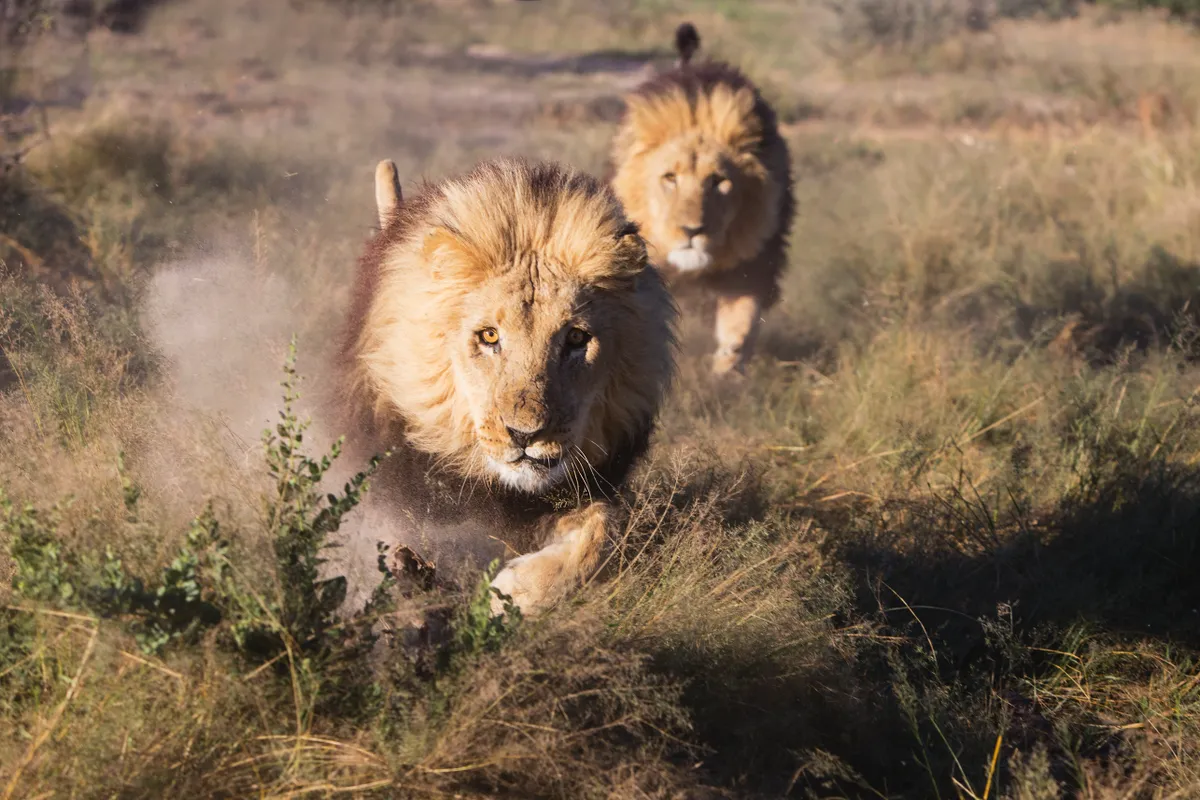
It is vital to stand your ground, perhaps retreating very slowly, but to continue facing the lion while clapping your hands, shouting and waving your arms around to make yourself look bigger. Most charges are mock charges, so you will usually be fine.
And remember: hold your ground! Never run or turn your back.
How to avoid been attacked by a lion
Do not approach too closely, especially in the case of mating lions or lionesses with cubs. Different circumstances trigger different behaviour. During courtship, male lions are often extremely aggressive and should not be approached, even in a vehicle.
A lioness with cubs is naturally protective and should be given lots of space. And being predominantly nocturnal, lions lose their inherent fear of humans at night and become much more dangerous and prone to attack.
Be more cautious at night. Avoid camping in areas of high lion density – maintain a watch throughout the night if worried.

